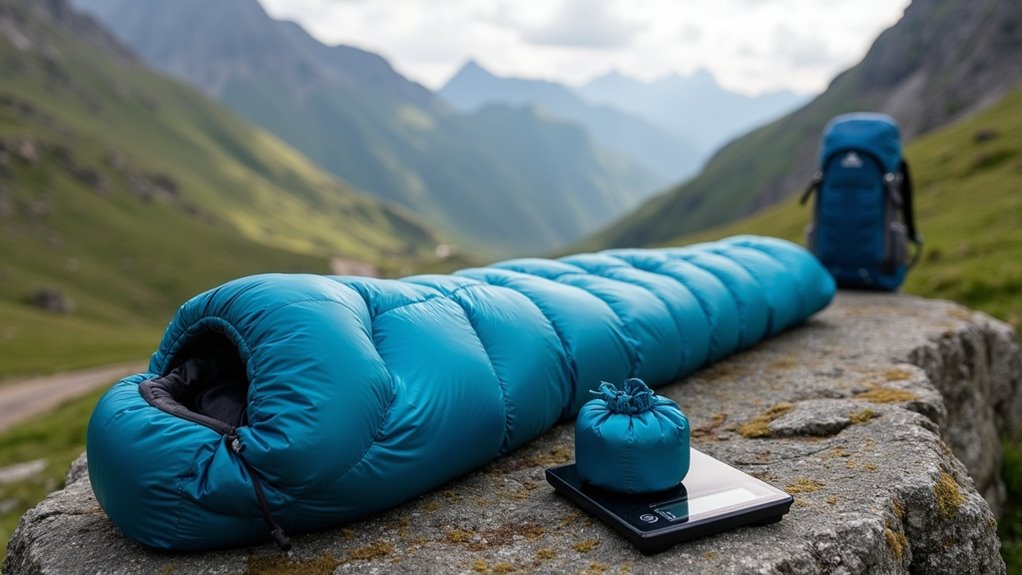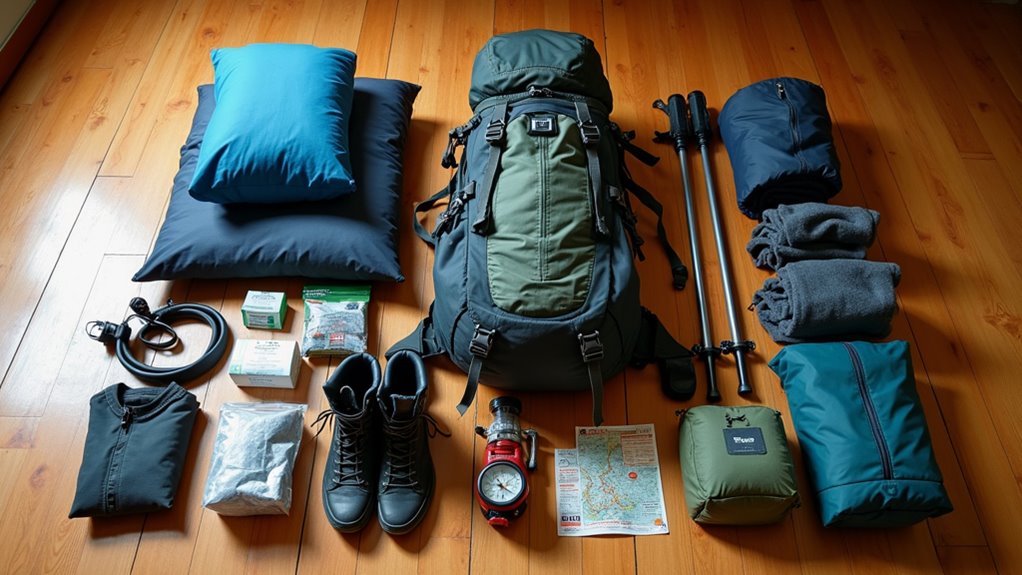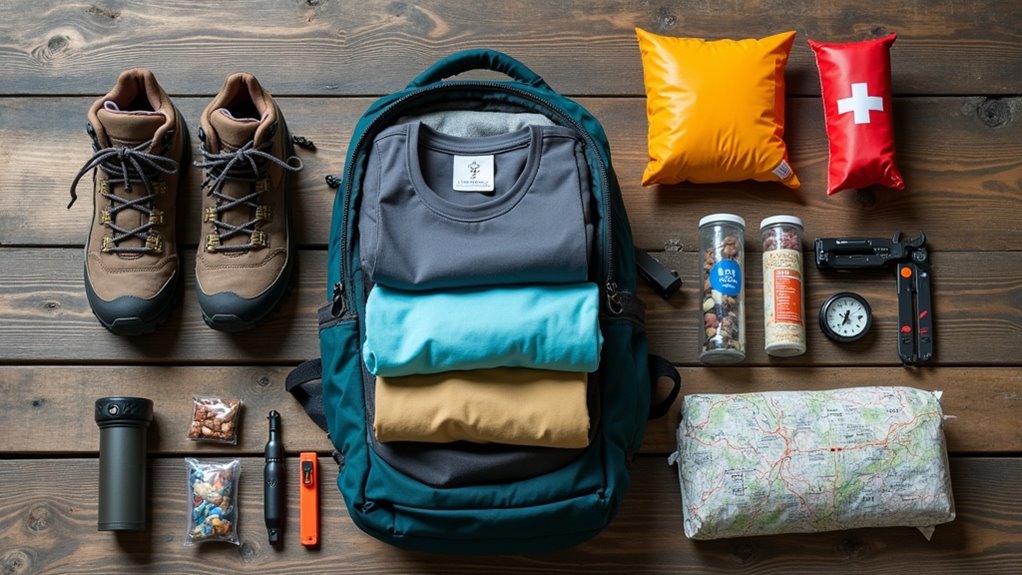For backpacking, you’ll usually find sleeping bags weighing between 2 and 4 pounds, depending on insulation type, shell material, and intended temperature range. Ultralight models can be as light as 1 to 2 pounds if you prioritize minimal pack weight, while synthetic bags and those designed for colder conditions tend to weigh more. Factors like a mummy cut, fill power, and features such as draft tubes also influence weight, so choosing the right bag can greatly affect your trip’s comfort and efficiency. More details follow.
When you’re planning a backpacking trip, choosing the right sleeping bag weight plays an essential role in balancing your overall pack load and ensuring nighttime comfort. Most backpacking sleeping bags weigh between 2 and 4 pounds (900 to 1800 grams), which works well for standard backpackers seeking a balance between portability and insulation.
If you want to minimize your pack’s weight, ultralight sleeping bags are available, often weighing between 1 and 3 pounds (450 to 1300 grams), with some models coming in at 2 pounds or less. These ultralight designs use high-loft down insulation, lightweight shell fabrics such as nylon or polyester, and minimal hardware to achieve a low weight while still maintaining enough warmth for three-season use. Some sleeping bags can weigh as little as 1 pound while still providing adequate warmth, thanks to advancements in lightweight materials and high-fill-power down insulation. For ultralight hikers, the weight of the sleeping bag is often one of the most critical factors in gear selection.
The weight of your sleeping bag depends on several factors, including insulation type and quality, bag cut, fill power, and materials used for the shell and lining. Down insulation generally provides more warmth for less weight compared to synthetic options, but synthetic bags are more resilient in wet conditions and tend to be heavier for equivalent warmth.
Sleeping bag weight is shaped by insulation, fill power, materials, and bag cut—down is lighter, while synthetic excels in wet conditions.
The shape of the bag—mummy cuts being the most efficient—also impacts both warmth retention and weight, with slimmer profiles reducing overall material use and corresponding weight. You’ll also notice that additional features, such as draft tubes, zippers, and baffle configurations, affect the total weight.
Lightweight construction often means simpler design, prioritizing essential features for backpackers looking to reduce pack weight. Sleeping quilts present another lightweight alternative, omitting zippers and full enclosures, which makes them lighter and highly compressible.
When choosing the right sleeping bag weight, consider your backpacking style, trip duration, expected weather conditions, and your personal comfort needs. Ultralight bags are ideal if you prioritize minimal pack weight and are prepared for variable temperature management.
Heavier, more insulated bags suit longer trips or colder environments where durability and warmth are critical. Compared to other gear, your sleeping bag typically accounts for a substantial portion of your base weight, making this choice important for overall pack efficiency and backcountry comfort.









